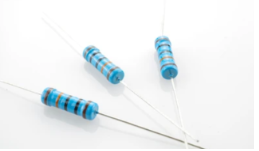In the digital age, technology professionals and electronic manufacturers are constantly seeking ways to enhance the performance of their systems. One often overlooked but crucial component is the resistor. This tiny piece of hardware can make a significant difference in the efficiency and reliability of electronic devices.
In this blog post, we will explore the importance of resistor technology, how quality resistors can enhance electronic performance, and what to look for in a reliable resistor supplier.
Understanding Resistors and Their Role
Resistors are passive electrical components that limit or regulate the flow of electrical current in a circuit, ensuring that devices function correctly. They hinder the current adjustment to different levels. Resistors are components whether you’re tinkering with a motherboard or a basic LED setup. The standard unit to measure resistance is the ohm (Ω), named after the renowned physicist Georg Simon Ohm.
Resistors are found in every device, from everyday gadgets to high-tech equipment. They play several vital roles in electronic circuits. They help control voltage and current, divide voltage, bias active elements and terminate transmission lines. Electronic circuits would be uncontrollable without resistors, and excessive current flow could damage other components.
Types of Resistors
There are several types of Resistors, each with unique properties and applications:
Carbon Film Resistors

Carbon film resistors are commonly used because they are cost-effective and reliable. They are created by applying a carbon layer to a base, ensuring consistent resistance and reasonable tolerance.
Cost-Effective: Carbon film resistors are known for being budget-friendly, which makes them suitable for projects with constraints.
Moderate Tolerance: These resistors typically have a tolerance range of around ±5%, which is appropriate for general uses.
Temperature Stability: Although not as temperature-resistant as some types, carbon film resistors perform effectively in environments with temperature fluctuations.
These resistors are widely employed in electronics, automotive systems, and power sources due to their balance between cost and functionality, making them a favored option across applications.
Metal Film Resistors

Metal film resistors provide greater precision and stability than carbon film resistors. These resistors are constructed by depositing a thin metal layer onto a ceramic rod, resulting in tighter tolerance and improved temperature.
High Precision: With tolerance levels as low as ±1%, metal film resistors are ideal for applications requiring accurate resistance values.
Enhanced Stability: These resistors exhibit excellent temperature stability, making them suitable for environments with significant temperature changes.
Low Noise: Metal film resistors generate less electrical noise than their carbon counterparts, ensuring cleaner signal processing.
Due to their precision and stability, metal film resistors are commonly used in audio equipment, measurement instruments, and high-fidelity circuits. Their low noise characteristics make them a preferred choice for sensitive electronic applications.
Wirewound Resistors
Wirewound resistors are well regarded for their capacity to handle power and maintain accuracy. They are crafted by wrapping a metal wire, often nichrome, around a ceramic, plastic, or fiberglass core. This design enables them to manage power dissipation better than other resistor types.
High Power Rating: Wirewound resistors can accommodate power levels ranging from watts to kilowatts, making them suitable for high-power applications.
Precision and Stability: With tolerance levels as precise as ±0.1%, wire-wound resistors offer accurate resistance values and exceptional stability.
Durability: These resistors are robust and can withstand harsh environmental conditions, including high temperatures and mechanical stress.
Wirewound resistors are found to be used in power supplies, motor controllers, and audio amplifiers. Their capability to handle power while maintaining stability in conditions makes them indispensable for demanding applications. Read more about types of resistors.
The Significance of Quality Resistor Technology
The quality of resistors can profoundly impact the performance and reliability of electronic systems. High-quality resistors ensure the electrical current flows smoothly, preventing overheating, signal distortion, and component failure.
Impact on Electronic System Performance
Quality resistors ensure that your electronic systems perform at their best. Low-quality resistors can cause voltage fluctuations, leading to unstable performance and potential damage to other components. In contrast, high-quality resistors maintain stable voltage levels, ensuring smooth operation.
Case Studies and Examples
Consider a case where a manufacturing unit experienced frequent breakdowns in its machinery. Upon investigation, it was discovered that subpar resistors were to blame. Upgrading to resistors notably improved the machinery’s efficiency, reducing downtime and maintenance expenses. This case highlights the role of quality resistors in ensuring system dependability.
The Long-Term Benefits
Investing in quality resistor technology offers long-term benefits. Not only do high-quality resistors enhance performance, but they also increase the lifespan of your electronic systems. This means fewer replacements and repairs, ultimately saving you time and money.
Characteristics of a Reliable Resistor Supplier
Choosing the right resistor supplier is just as important as selecting the correct resistors. A reliable supplier can provide high-quality components, consistent supply, and excellent customer support. Here are some factors to consider when choosing a resistor supplier:
Quality and Reliability
Quality should be at the forefront of your considerations when choosing a resistor supplier. Trusted suppliers adhere to quality standards that guarantee performance. Opting for suppliers with certifications and a proven history of delivering top-notch components is essential.
Comprehensive Support
A good supplier offers more than just products. They provide comprehensive support, including technical assistance, customization options, and after-sales service. This support is crucial for troubleshooting issues and optimizing the integration of resistors into your systems.
Competitive Pricing
While quality remains paramount, competitive pricing is also a factor. A dependable supplier balances quality and affordability to provide value for your investment. They should offer pricing models and discounts for purchases, facilitating better budget management.
Selecting the supplier is crucial to the success of your project; therefore, it’s essential to consider these aspects carefully.
Top Trends in Resistor Technology
The field of resistor technology is continually evolving, with new advancements and trends emerging. Staying updated with these trends can help you make informed decisions and stay ahead of the competition.
Advancements in Materials
One significant trend is the development of new materials that offer better performance and reliability. For example, graphene-based resistors are gaining attention for their exceptional conductivity and stability, making them suitable for high-frequency and high-power applications.
Miniaturization
With the trend towards miniaturization in electronics, resistors are also becoming smaller while maintaining their performance characteristics. This miniaturization allows for more compact and efficient circuit designs, especially in portable and wearable devices.
Smart Resistors
Bright resistors, which incorporate advanced features such as temperature compensation and real-time monitoring, are also becoming popular. These resistors can adjust their resistance based on environmental conditions, ensuring optimal application performance.
By monitoring these trends, you can leverage the latest advancements in resistor technology to enhance your electronic designs.
Best Practices for Integrating Resistor Technology
Effective Selection
Selecting the proper resistor involves choosing one with the correct resistance value. Consider factors like tolerance, temperature coefficient, and power rating. Understanding these parameters will help you select resistors that meet your application’s requirements.
Proper Installation
Installing resistors is essential to ensure their best performance. To avoid overheating, solder them and place them in areas with airflow. Adding heat sinks or cooling fans can also help control the temperature and prolong the resistors’ life.
Regular Testing and Maintenance
Regular testing and maintenance are essential to ensure resistors perform optimally. Use multimeters and other testing equipment to check the resistance and integrity of the resistors periodically. Replace any that show signs of wear or damage.
Following these best practices, you can effectively integrate resistor technology into your electronic systems, ensuring optimal performance and longevity.
Conclusion
In electronics, resistors ensure various devices and systems’ smooth and reliable operation. Understanding the significance of quality resistor technology and partnering with a reliable supplier can significantly affect your electronic designs.
By staying current with the latest trends and following best integration practices, you can enhance the performance and reliability of your electronic systems.
If you want to optimize your circuitry and explore quality resistor suppliers, we encourage you to engage with our community and learn more about the best practices in resistor technology. Together, we can build more efficient and reliable electronic systems.


